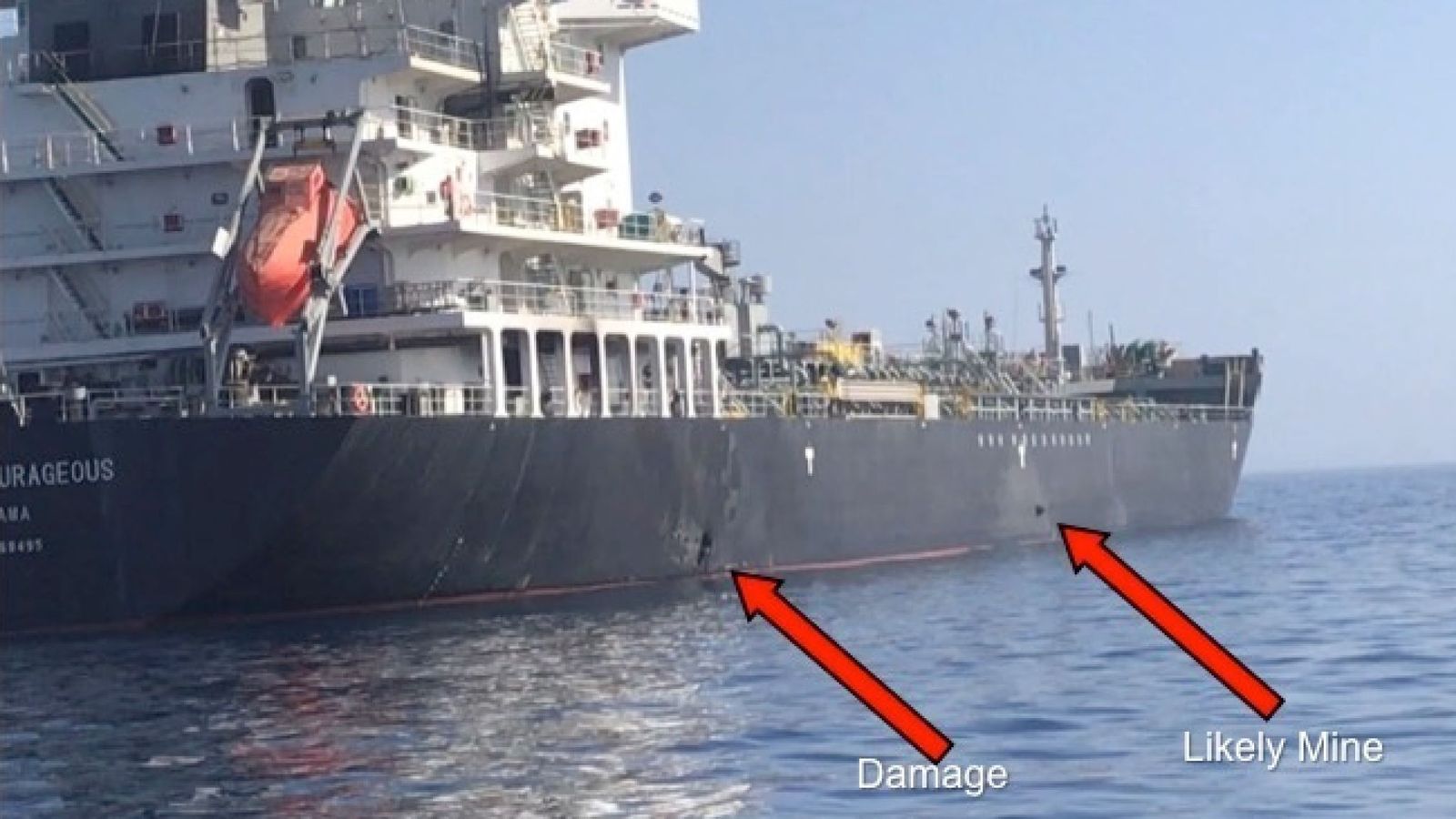
The US blames Iran for a campaign of "escalating tensions" in a region crucial to the world's energy supplies.
The US says a new video shows Iran trying to hide its involvement in an attack on two oil tankers near the Strait of Hormuz.
The video, released by the US military, apparently shows Iran's Revolutionary Guard removing an unexploded limpet mine from one of the tankers which was targeted on Thursday.
Limpet mines are magnetic and attach to the hulls of a ship, disabling but not sinking them.
US Secretary of State Mike Pompeo has accused Iran of attacking the tankers, and has instructed the US ambassador to the UN to raise the issue before the security council.
Iran has denied involvement, describing Mr Pompeo's "accusations" as "alarming".
Foreign Secretary Jeremy Hunt said that while the UK would be making its own assessment "soberly and carefully, our starting point is obviously to believe US allies".
Mr Hunt said he had been in contact with Mr Pompeo, adding: "We are taking this extremely seriously and my message to Iran is that if they have been involved, it is a deeply unwise escalation which poses a real danger to the prospects of peace and stability in the region."
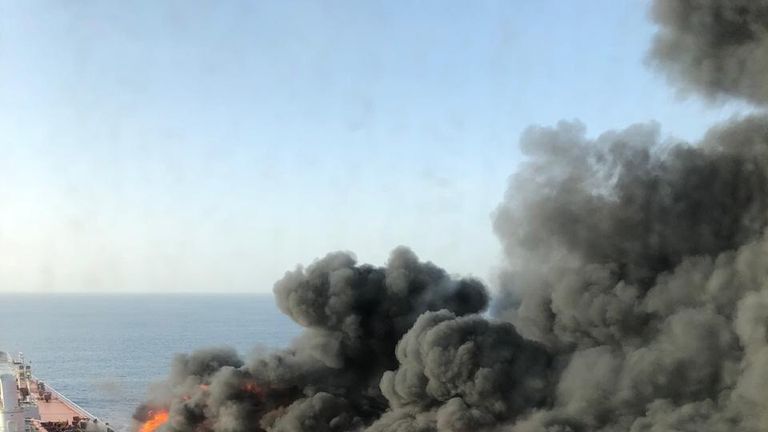
The tankers were attacked in the Gulf of Oman on Thursday
In another development, the company which owns one of the ships, the Kokuka Courageous, said crew spotted an Iranian naval ship nearby.
President of Kokuka Sangyo, Yutaka Katada, did not say whether that was before or after the attacks.
Crew also saw "flying objects" just before the attack, Mr Katada said, suggesting they could have been bullets.
The Kokuka Courageous was attacked twice, first near the engine room, and then on the starboard side towards the back.
Mr Katada described claims of a mine attack as "false" because the damage was above the ship's waterline.

Yutaka Katada, president of shipping company Kokuka Sangyo, briefing reporters. Pic: Kyodo/via Reuters
Iran said in a statement to the UN: "The US economic war and terrorism against the Iranian people as well as its massive military presence in the region have been and continue to be the main sources of insecurity and instability in the wider Persian Gulf region and the most significant threat to its peace and security."
Foreign Ministry spokesman Abbas Mousavi said: "We are responsible for ensuring the security of the Strait and we have rescued the crew of those attacked tankers in the shortest possible time.
"Obviously, accusing Iran for such a suspicious and unfortunate incident is the simplest and the most convenient way for (Mike) Pompeo and other US officials. These accusations are alarming."

An Iranian navy boat reportedly trying to put out the fire on the Front Altai
The tankers - the Kokuka Courageous and Norwegian-owned MT Front Altair - were hit in the Gulf of Oman, 25 miles from the Iranian coast.
The Front Altair was loaded with the flammable hydrocarbon mixture naphtha from the United Arab Emirates, and the Kokuka Courageous was carrying methanol from Saudi Arabia and Qatar.
The Strait of Hormuz is a crucial shipping route for the Gulf's energy-rich countries, and crude oil prices rose more than 4% following the attacks.
Later, prices settled around 2% higher.

The US blames Iran for the attacks on the tankers
Central command spokesman Captain Bill Urban said: "The US and the international community stand ready to defend our interests, including the freedom of navigation.
"The United States has no interest in engaging in a new conflict in the Middle East. However, we will defend our interests."
The US already blames Iran or its proxies for a 12 May attack on four tankers off the coast of the United Arab Emirates, as well as drone strikes on two Saudi oil-pumping stations two days later.

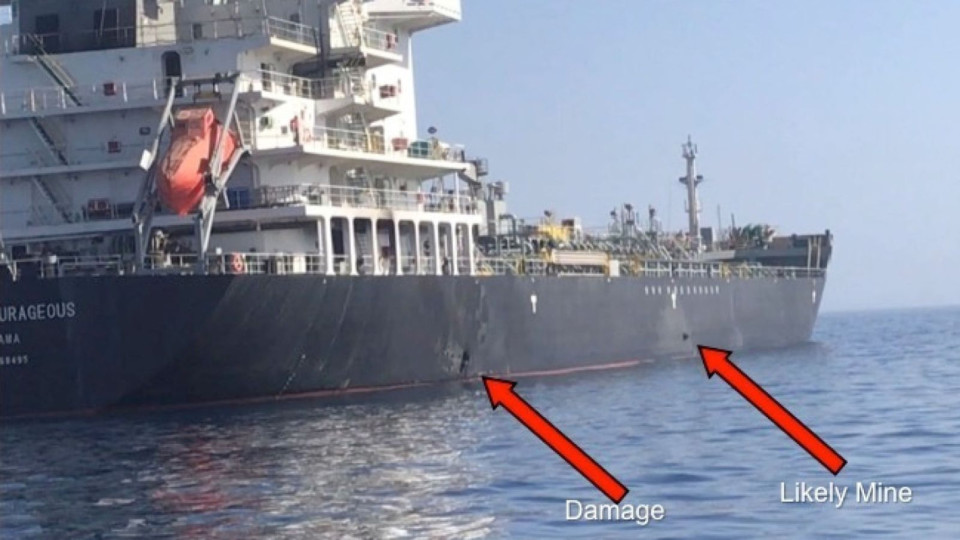


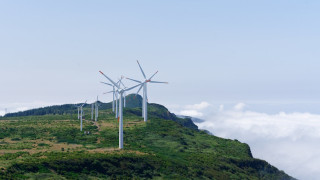
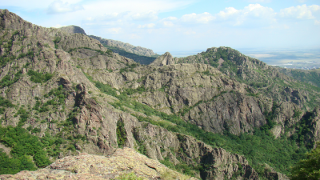
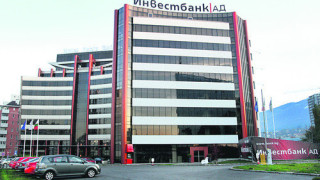
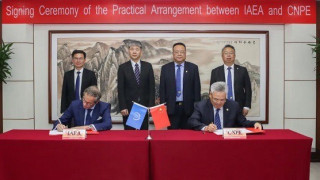

Leave a comment